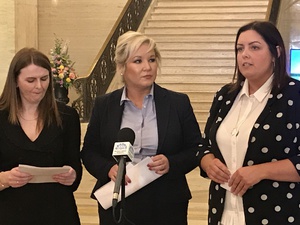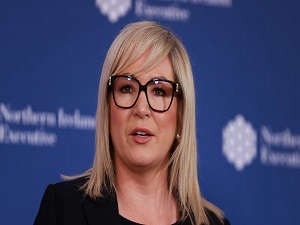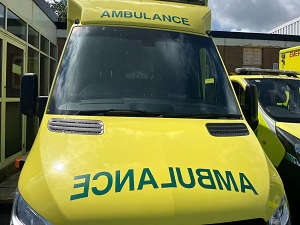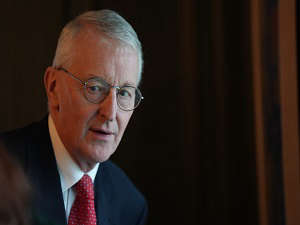
By Rebecca Black, PA
Thousands of the most vulnerable in society are set to receive food boxes during the coronavirus lockdown.
The new weekly delivery service was announced by communities minister Deirdre Hargey as Northern Ireland braces for an expected surge in Covid-19 cases.
The number of people who have died in Northern Ireland after contracting the virus has risen by seven to 63, health officials said on Sunday.
Testing has resulted in 91 new positive cases, bringing the total number in the region to 1,089.
The food box delivery service will allow a weekly box of mainly non-perishable goods to be delivered directly to the door of vulnerable people who have been notified to shield by their GPs, who cannot afford food and do not have access to local support networks.
Boxes will also be available to those who are not shielding that are in critical need of food.
The department for communities is leading the initiative, working with health trusts, local councils, and the voluntary, community and private sectors.
Ms Hargey said the service will help ensure those most in need will have access to basic food supplies.
"Not only will it ensure that the most vulnerable do not go without, but it will allow those at risk of social isolation to see a friendly face and know that we as a society have not forgotten about them," she said.
"There's a tremendous amount of goodwill and generosity in action across our society, which is very welcome at this challenging time.
"This is an example of genuine collaboration across the public, private and community sectors. My officials are working with local food suppliers, local councils and the community and voluntary sector to get this vital service in place."
The first food boxes are due to be delivered in the coming days.
Food suppliers will provide the boxes to local councils, and the packages will include items such as tinned food, dried food and soap alongside some fresh fruit and bread.
The boxes will then be delivered by local voluntary and community organisations to those people who have been identified as being most vulnerable during the pandemic.


 O’Neill praises Pope’s commitment to peace as she confirms funeral attendance
O’Neill praises Pope’s commitment to peace as she confirms funeral attendance
 Woman suffers ‘traumatic ordeal’ in roadside robbery in Newry
Woman suffers ‘traumatic ordeal’ in roadside robbery in Newry
 Shock over record number of attacks on ambulance crew
Shock over record number of attacks on ambulance crew
 Police investigate petrol bomb attack at Co Antrim flat
Police investigate petrol bomb attack at Co Antrim flat
 Benn to discuss legacy issues with Harris at Hillsborough Castle
Benn to discuss legacy issues with Harris at Hillsborough Castle